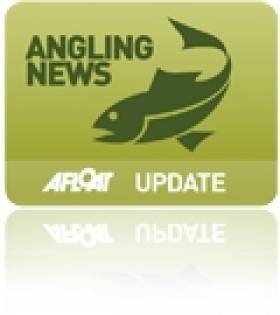Displaying items by tag: Joe McHugh TD
€50,000 in Funding Announced for Angling Development in Midlands
#angling – Minister of State with Special Responsibility for Gaeltacht Affairs and Natural Resources, Joe McHugh TD, has today announced that angling clubs and organisations in the Midlands are set to benefit from the €50,000 Midland Fisheries Fund (MFF), introduced by Inland Fisheries Ireland (IFI) earlier this year.
Following on from the success of last year's pilot scheme, Inland Fisheries Ireland decided to continue the scheme through which angling clubs and organisations can access funding to undertake sustainable development works. The fund has been created through angler contributions set-a-side from the Permit Income received by the IFI in the Midland Fisheries Group permit area.
Applications were received from various clubs and organisations in June this year in the Westmeath, Roscommon, Offaly and Cavan county catchments. Projects benefitting from the fund will improve and increase angler accessibility to fisheries, develop and install new fishing stands and tackle terrestrial invasive species. A number of angling clubs and other groups have benefitted from this round of funding and projects are about to commence on Loughs Sheelin, Glore, Ennell, Derravaragh and the River Suck.
Minister Joe McHugh commented, "It is through these sustainable funding schemes, such as the Midland Fisheries Sustainable Development Fund, that anglers and communities are empowered and can benefit hugely. Essentially it is money raised in the locality through purchase of the permit that facilitates a funding injection back into the catchments, increasing revenues to communities and creating jobs - funds raised in the locality staying in the locality".
Full details of the Midland Fisheries Fund can be obtained on the Inland Fisheries Ireland website
Donegal Marine Stakeholders Encouraged Over Integration Plan
#NEWS UPDATE - A Donegal TD is encouraging the county's marine stakeholders to submit suggestions for the Government's upcoming Integrated Marine Plan, as previously reported on Afloat.ie.
The plan, which will be published in the summer, "will be a national agenda for developing our country’s marine potential, across tourism, shipping, leisure, fisheries and other sectors," said Joe McHugh TD.
The Dáil deputy noted "it is significant" that Taoiseach Enda Kenny and Minister for the Marine Simon Coveney are "dealing with this personally" as "previous Governments did not give this type of prioritisation to the industry".
He added: “I encourage Donegal marine stakeholders who see potential for national development in the fisheries industry, sea tourism, marine leisure, oil production, renewable energy production, deep sea fisheries and in various other areas to make submissions to the Integrated Marine Plan."
More information on the Integrated Marine Plan can be found at www.oceanwealth.ie.






























































